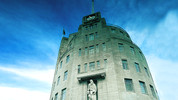
The BBC has put online the archive from the Reith Lectures. Hours of happy listening. I picked Edward Norman from 1978 as an entrée. He’s entertainingly spikey, with none of the politeness I expect of today’s. A sign of our times? A taster, demonstrating that what we take to be innovative and ours is hardly so too. Over 30 years ago, Norman mused:
Today, men demand that their own sense of political virtue be actually applied everywhere. And they are prepared to countenance forceful methods to bring their ideals into existence. The instinct that once prompted holy warfare, rather than diplomatic accommodation of diversity, is now rampant in secularised form. It is let loose in crusades for human rights, or to secure majority rule, or to extinguish what is judged to be racism or economic exploitation.
Ring any bells?
Incidentally, listening to Aung San Suu Kyi’s first lecture this week, with her declaration that she feels free because she can speak on the BBC, made me think again that the government’s cuts to the World Service, and political attacks on the BBC in general, are not only foolish but often morally revolting.